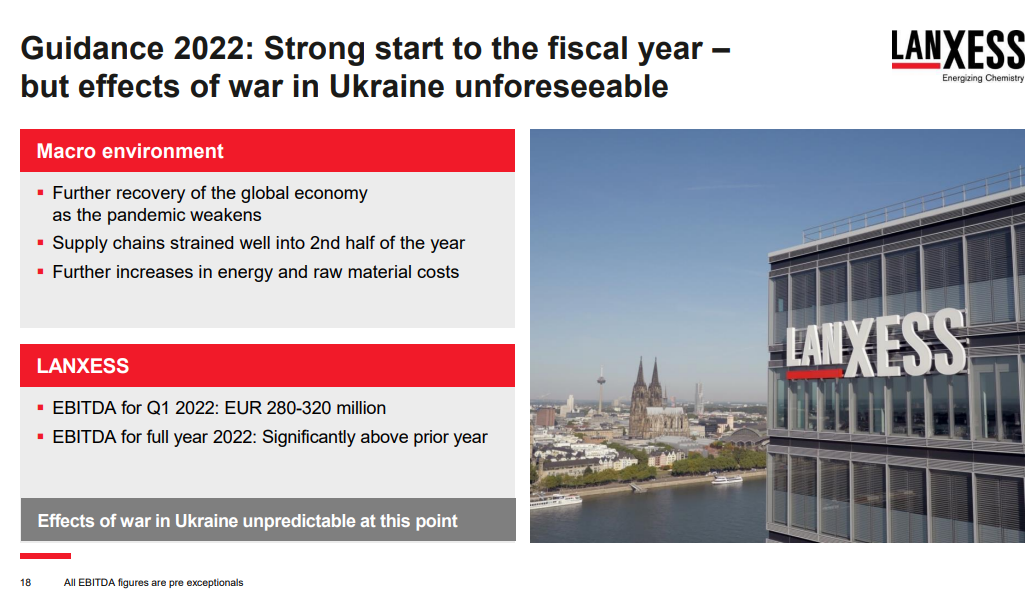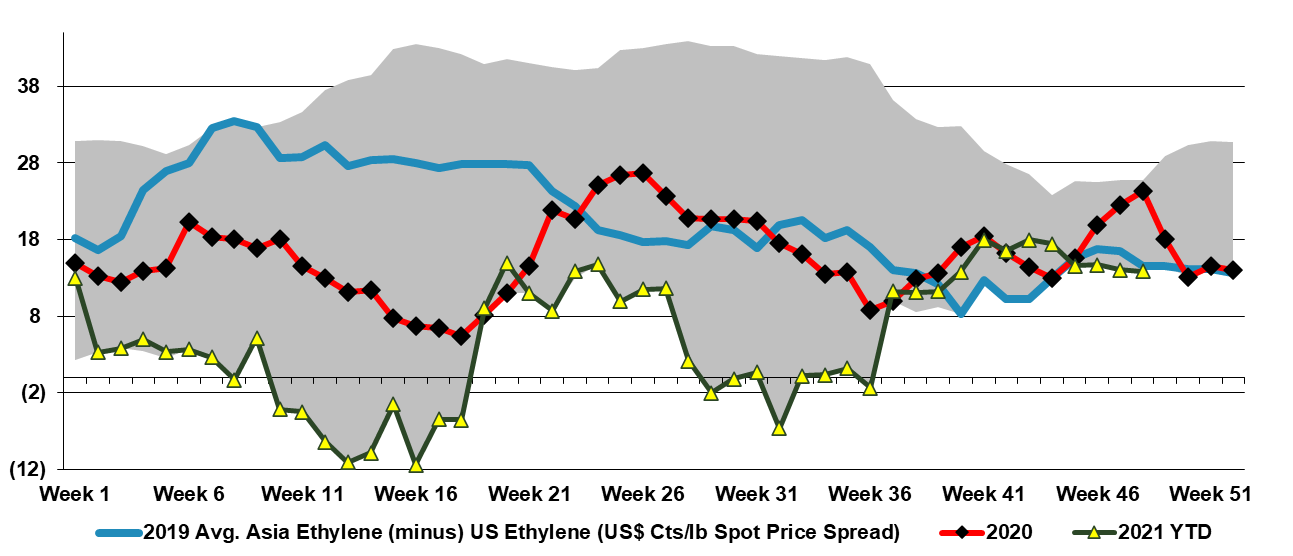The Lanxess guidance below is likely the right way to go for now. The medium-term effects of the Russia/Ukraine crisis are unknowable today and all companies can monitor is the immediate impact on their businesses. Most had entered 2022 seeing very strong demand growth and the promise of a much better year as COVID restrictions were lifted and economic activity picked up generally. Now all bets are off, as it is not just the primary impacts that matter – such as a companies’ direct exposure to Russia or Ukraine – note McDonald's is suggesting that pulling out of Russia will cost the company $50 million a month, for example – but also the secondary impacts of what the conflict is doing for supply-chains and pricing. Higher hydrocarbon pricing in Europe, for example, will impact the economics of all production, not just the products sold to Russia or Ukraine. There will also be some demand adjustments directly related to the conflict – disaster relief for example – more PPE – more spending on defense and defense-related materials – DuPont’s kevlar business should be seeing a benefit for example.
Guidance Is Tough For Corporates To Provide; US Competitive Advantage Still Rising
Mar 11, 2022 2:56:20 PM / by Cooley May posted in Chemicals, Ethylene, hydrocarbons, US ethylene, DuPont, Navigator Gas, Russia, cost advantage, Ukraine, Lanxess, corporate guidance, competitive advantage
US Competitive Advantage Pushing Ethylene Exports
Dec 1, 2021 12:43:50 PM / by Cooley May posted in Chemicals, Ethylene, petrochemicals, propane, arbitrage, ethylene producers, Ethylene Surplus, US ethylene, manufacturing, naphtha, ethylene exports, exports, chemicalindustry, ethane imports, petrochemicalindustry, Navigator Gas
The Navigator Gas announcement should not be a surprise as the ethylene export arbitrage reopened in the US in September (Exhibit below) and since the terminal opened there has been a demand for ethylene exports each time the numbers have made sense. There are ethylene consumers in Asia that are net short and will buy incremental volumes from the US when the price is right relative to local suppliers and there is incremental demand in countries and regions that appear to be in surplus, including Europe, where a buyer can leverage an import to try to push local prices lower. In China, some of the facilities that require either propane or ethane imports might be better off buying ethylene versus making it today, and this is certainly the case for naphtha importers, as we highlighted in our Weekly Catalyst report on Monday. Today a US exporter can buy spot ethylene in the US and deliver it to China for less than the cost of manufacture in China, before the cost of getting the local ethylene to any consumer that is not on site.



